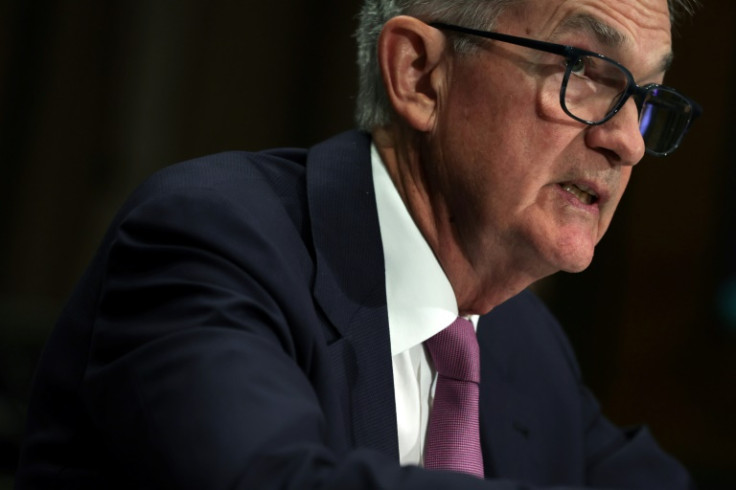Jackson Hole 2023 Meeting: Will Rising Bond Yields And China's Woes Give The Fed A Reason For Another Pause?

Rising bond yields and geopolitical events like China's property woes could set the tone of this year's Jackson Hole Economic Symposium.
The Fed's Jackson Hole economic meetings are on Wall Street's radar this time every year. It's where the chief of the world's most powerful central bank gives an assessment of domestic and overseas macroeconomics and announces critical policy changes that move financial markets.
This year, traders and investors on Wall Street will pay close attention to figure out whether rising bond yields and China's woes will give the Fed a good reason for a dovish message — a pause in interest rate hikes in fighting inflation.
Rising bond yields, which have been driving other long-term interest rates higher, are helping the Fed fight inflation: They have been tightening financial conditions, putting the breaks to cyclical sectors like housing, a critical driver of consumer inflation. They make the case for a dovish message.
In addition, China's economic slowdown and producer deflation are helping drive commodity prices lower, another tailwind for the Fed's inflation-fighting policy.
Meanwhile, China's property woes and high-profile bankruptcies create the prospect of another market contagion, giving the Fed another reason for a dovish message.
Still, Michael Wagner, the co-founder and chief operating officer at Omnia Family Wealth, doesn't believe China's woes will be a factor in this year's Jackson Hole Fed's message.
"If the Chinese real estate issue becomes a global systemic one, the Fed will have to react, but I think we're still far from that being proven," he told International Business Times.
"The Fed is very data dependent, and the challenge with being data dependent when it comes to anything coming out of China is that the data is probably manipulated," he added.
Oliver Rust, head of product at independent inflation data aggregator Truflation, is of a similar opinion.
"It is doubtful that anything happening in China or indeed any country other than the U.S. is of the slightest concern to Jerome Powell or the FOMC when setting interest rates," he told IBT.
He believes it is domestic rather than overseas conditions that will dictate the Fed's Jackson Hole monetary policy message.
"Unemployment in the U.S. remains stubbornly low at 3.5% while wage inflation has continued to increase," Rust added. "Meanwhile, as inflation has declined over the past quarter, purchasing power for U.S. consumers has grown, which is good news after 25 months of price increases. This is reflected in growing retail sales. But core inflation is increasing, as is the headline CPI. This is a situation that warrants more interest hikes, not less."
Joe Camberato, chief executive officer and founder of National Business Capital, takes a compromising view. "The economic scene, both here at home and over in China, is throwing some shade on raising rates," he told IBT. "Our economic engine shifted gears and cooled. You have mortgage rates closing in on 8%, and credit card rates are up, too. The cumulative effect of these rate hikes is taking a genuine toll on the average American."
Angelo Kourkafas, CFA, senior investment strategist at Edward Jones, sees a relatively neutral message out of Jackson Hole. He expects the Fed to maintain its options open, highlighting the data-dependency of monetary policy. "U.S. economic data have consistently come in better-than-expected over the past three months, pushing the Citi economic surprise index to its highest since early 2021," he told IBT.
"Even though the economy was expected to contract in the last two quarters of the year, economists have now revised their estimates higher and expect growth to stay positive," he added. "While this resiliency makes the soft-landing scenario more likely, it also supports expectations that the Fed will keep interest rates higher for longer. But the improvement in inflation even as growth has stayed resilient suggests the Fed might not need to keep tightening policy further."
© Copyright IBTimes 2024. All rights reserved.






















